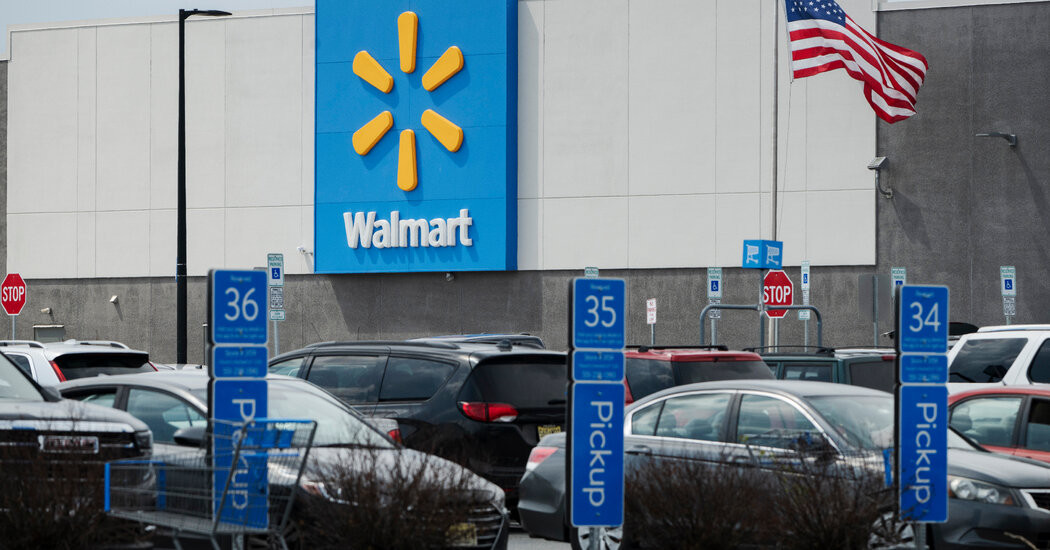

The retailer reported sales growth, especially in its e-commerce division, but also cautioned about economic uncertainty in the quarters ahead.
Walmart reported another quarter of solid sales on Thursday, but the retail giant, known for its low prices, cautioned that President Trump’s tariffs may push the company to start raising prices soon.
Walmart, the largest retailer in the United States, said on Thursday that sales at its U.S. stores rose more than 3 percent, to $112 billion, in its most recent quarter, which ran through April. The company’s e-commerce sales jumped more than 20 percent, with the fast-growing segment recording its first-ever profitable quarter.
The retailer kept its full-year financial forecast unchanged from its previous projection in February, with revenue expected to increase 3 to 4 percent this year. Many other large companies have recently scrapped their forecasts, saying that it was too difficult to make predictions under the Trump administration’s on-again, off-again tariff policies.
But even as Walmart’s sales remain strong and its projections hold steady, executives said tariffs are weighing on the company and may lead to higher prices. “We will do our best to keep our prices as low as possible but given the magnitude of the tariffs, even at the reduced levels announced this week, we aren’t able to absorb all the pressure given the reality of narrow retail margins,” Doug McMillon, Walmart’s chief executive, said on a call with analysts on Thursday.
“The higher tariffs will result in higher prices,” he added. Shoppers could see the uptick as soon as the end of this month, John David Rainey, Walmart’s chief financial officer, said in an earlier interview with CNBC.
The latest quarter spanned three months during which tariffs roiled corporate America, and Wall Street analysts and investors closely watched Walmart’s report for any signs of the fallout from Mr. Trump’s trade wars in the retail sector. Mr. Trump unveiled a suite of tariffs on dozens of countries in early April. On Monday, the Trump administration temporarily lowered tariffs on many Chinese imports to 30 percent, down from the 145 percent rate that had been in place for nearly one month.